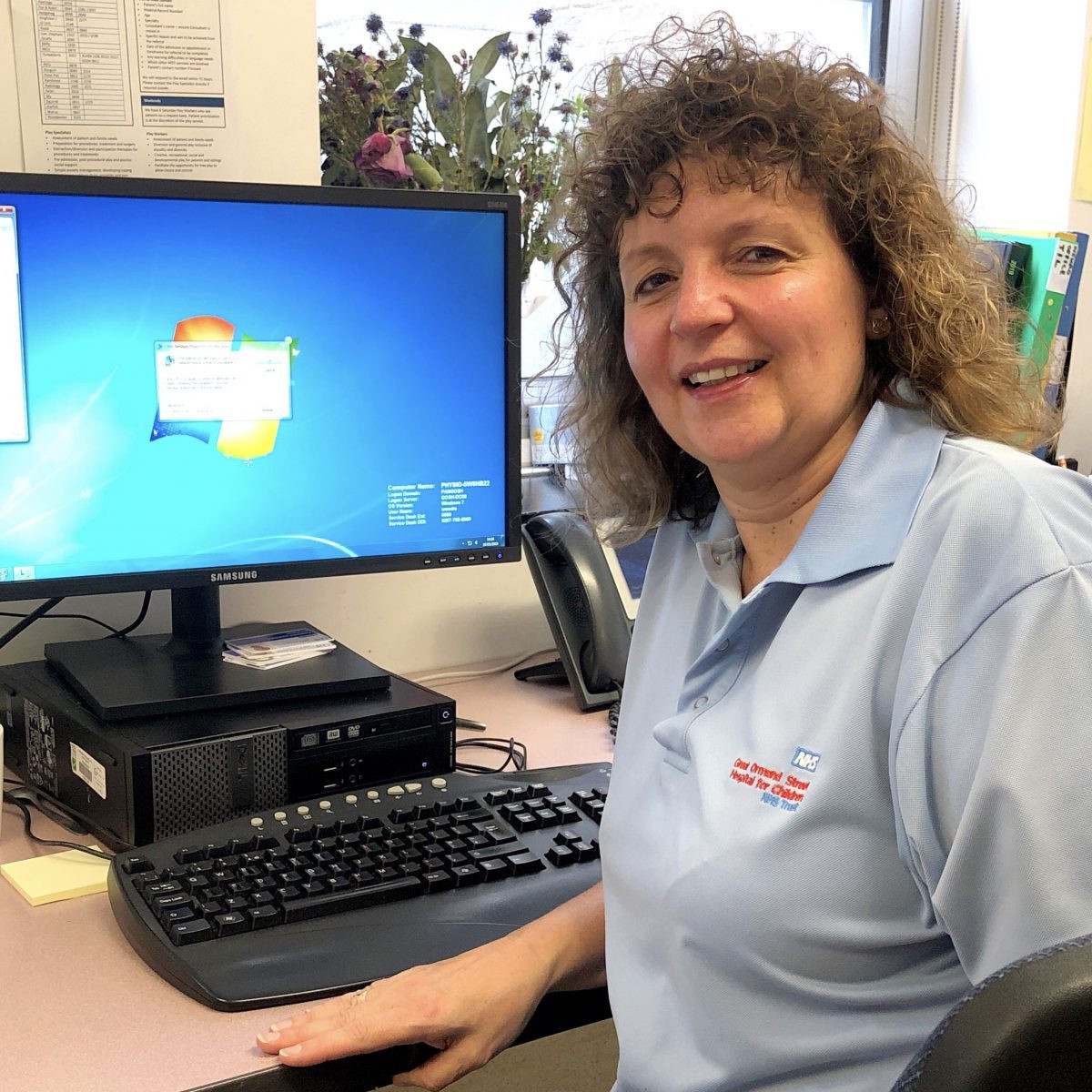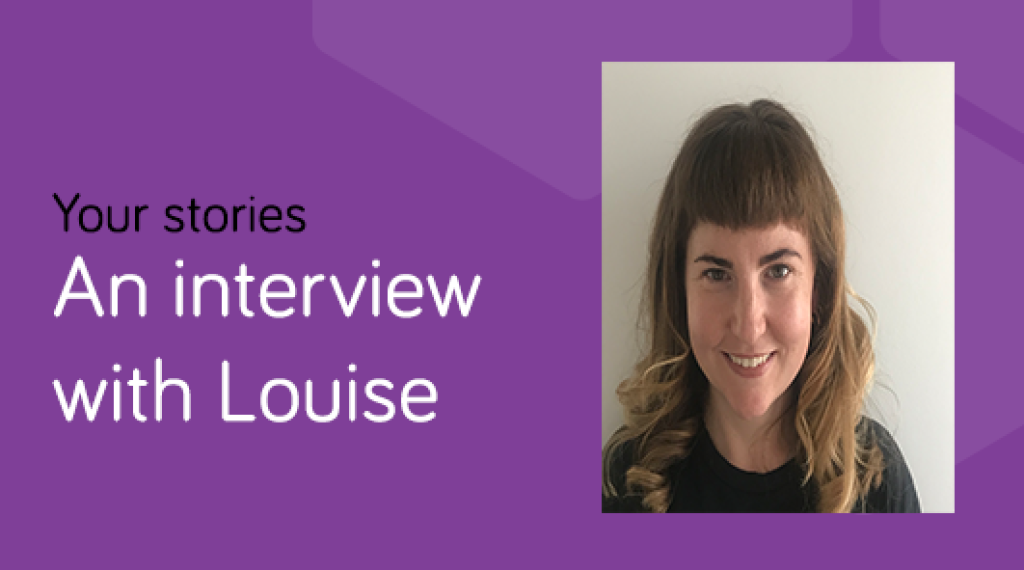We asked Michelle if she would answer a few questions about her work with us and our members.
 In a sentence what is your job role?
In a sentence what is your job role?
I am a clinical specialist physiotherapist and provide a physiotherapy service to the medical wards at Great Ormond Street Hospital. This includes cover to the metabolic, gastroenterology, endocrine and dermatology patients. I have a special interest in Lysosomal storage disorders and see patients whether they are in or out patients at the hospital.
How long have you specialised?
I have specialised in this area since 1998 – goodness that is over 20 years now!!! Where does the time go?
What made you specialise in metabolic physiotherapy?
I really enjoy the diversity of all the conditions. They all present so differently and all have their own separate challenges. It is wonderful to be able to work with the families and problem solve together. Being a tertiary specialist centre I feel very privileged that we get to see so many families very regularly and this allows us to build up a relationship and get to know them really well.
What changes (for better or worse) have you seen since joining the team?
When I first started my job there was no ERT available as a treatment. This has been amazing to be part of and witness how new treatments have imp
roved our patient’s functional abilities. Also at Great Ormond Street Hospital our team has grown considerably over the years and we now have an enhanced service with dedicated MDT clinics. Along with the specialist metabolic consultants these are also attended by other clinicians depending on the needs of the patients – orthopaedic consultant, neurosurgeon, respiratory physician, neurologist, physioth
erapist, speech and language therapist, psychologist, clinical nurse specialist etc. This has led to a much more holistic service and an enhanced experience for our patients.
What are the most common issues MPS patients/members have?
From a physiotherapy point of view most patients I see have joint stiffness and pain that can affect their functional abilities. Our patients put up with a lot and are very stoical, it may be we need to provide some strengthening exercises, postural care advice or suggest a course of hydrotherapy. I also spend a lot of time liaising with local therapists so we can all work in partnership together for the good of our patients. Our aim is to maintain function for as long possible within the limits of the condition.
In what way do you work alongside the society to get favourable results for patients/members?
We really appreciate the input from the advocacy workers. They attend clinics and are an excellent resource for our patients. They will help to bring families together, problem solve and help point us in the right direction if specific advice is needed. We can also look to the society for help on behalf of our patients when assistance is needed in terms of school issues, supporting the access of funding for specialist equipment etc. It does feel like one big team where the joint goal is providing the best care for all our patients/members.
Will you be attending MPS conference this year?
I will indeed be attending – both myself and several other members of the Great Ormond Street Hospital team. We all really value this opportunity to share ideas, keep up to date with the latest research, news etc. But most importantly it is really great to have the opportunity to speak to our families in a much more informal environment.

